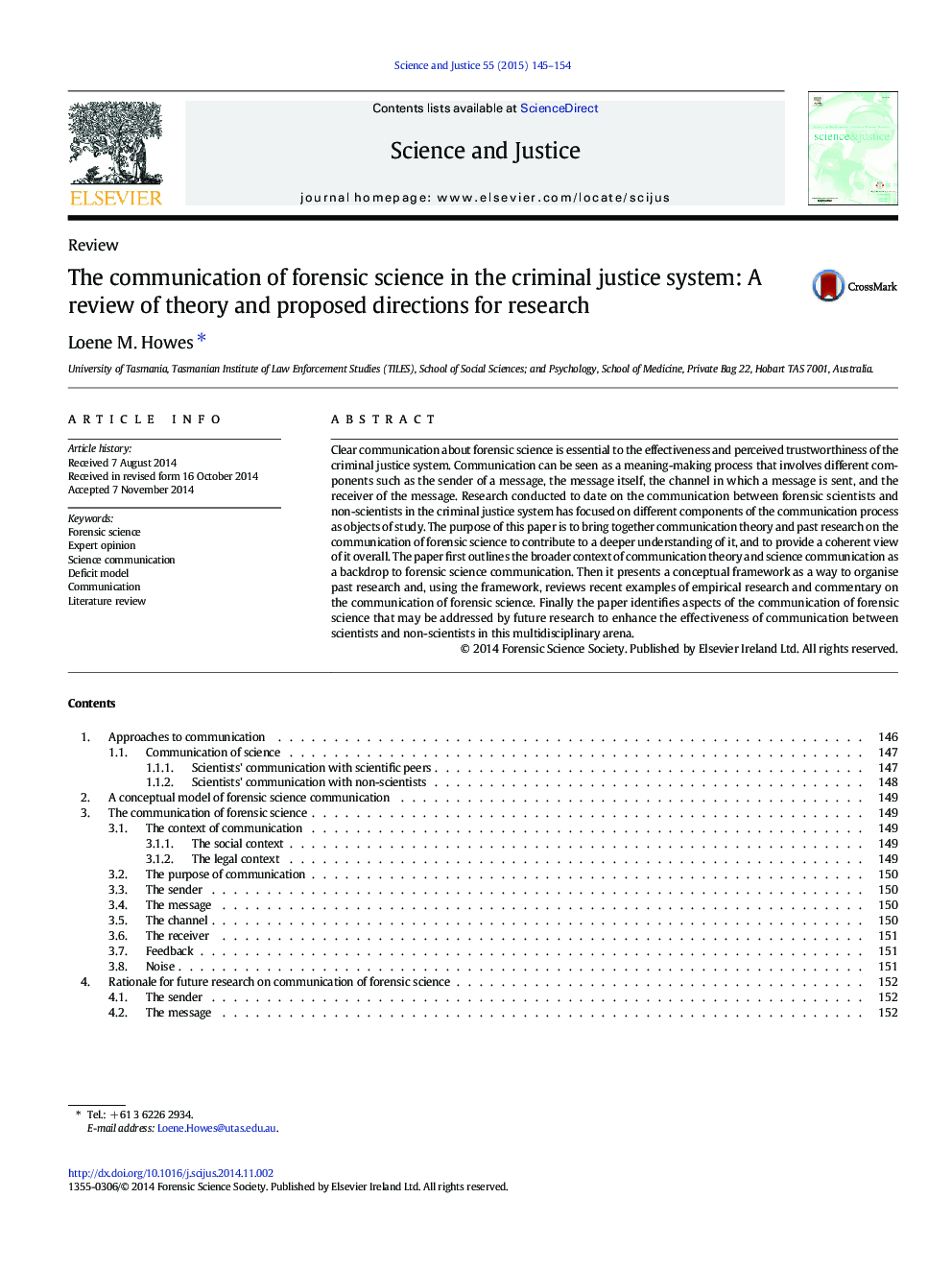| Article ID | Journal | Published Year | Pages | File Type |
|---|---|---|---|---|
| 106943 | Science & Justice | 2015 | 10 Pages |
•While context is important, the deficit model of science communication represents much communication of forensic science.•A conceptual model of the communication of forensic science is developed, with context and purpose incorporated.•Using the conceptual model to review past research, under-researched aspects of the communication become apparent.•A research agenda is outlined to contribute to the development of more effective communication of forensic science.
Clear communication about forensic science is essential to the effectiveness and perceived trustworthiness of the criminal justice system. Communication can be seen as a meaning-making process that involves different components such as the sender of a message, the message itself, the channel in which a message is sent, and the receiver of the message. Research conducted to date on the communication between forensic scientists and non-scientists in the criminal justice system has focused on different components of the communication process as objects of study. The purpose of this paper is to bring together communication theory and past research on the communication of forensic science to contribute to a deeper understanding of it, and to provide a coherent view of it overall. The paper first outlines the broader context of communication theory and science communication as a backdrop to forensic science communication. Then it presents a conceptual framework as a way to organise past research and, using the framework, reviews recent examples of empirical research and commentary on the communication of forensic science. Finally the paper identifies aspects of the communication of forensic science that may be addressed by future research to enhance the effectiveness of communication between scientists and non-scientists in this multidisciplinary arena.
